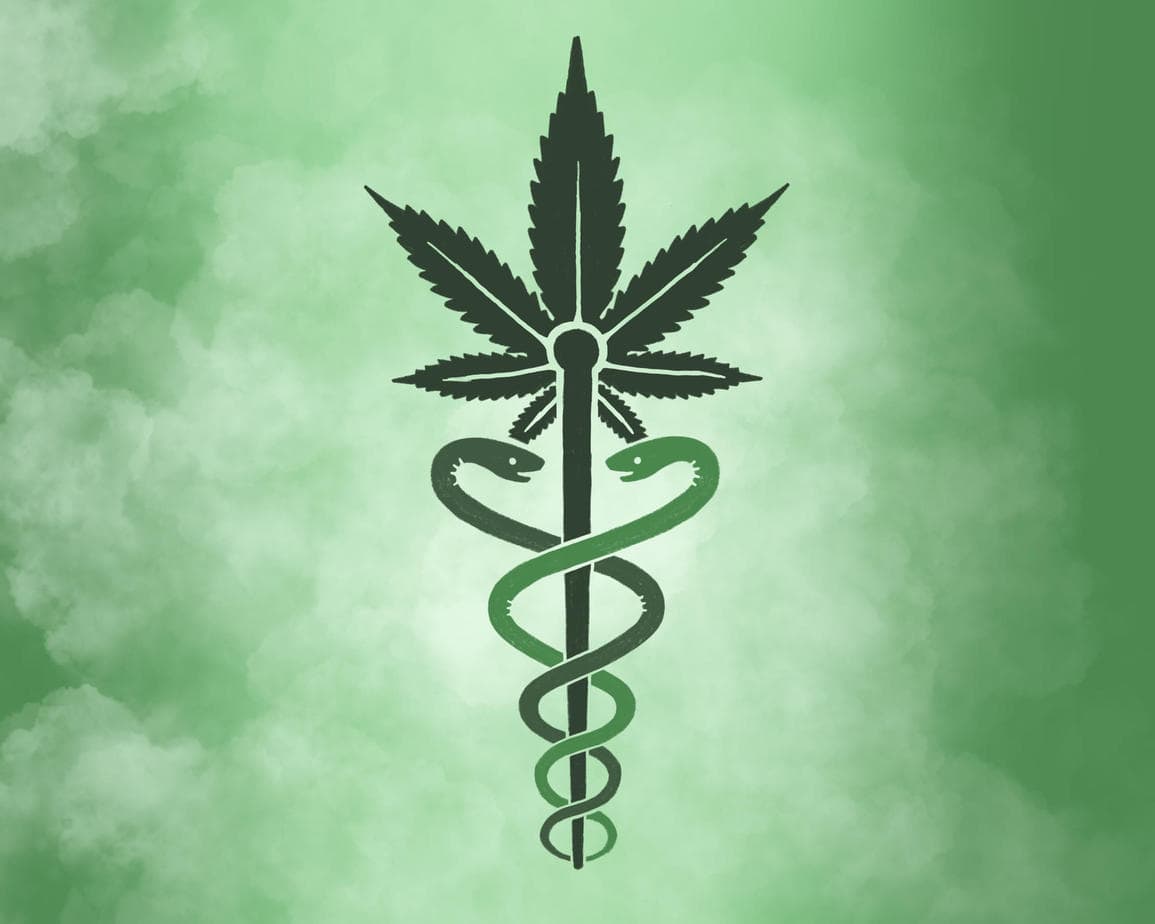The Recovery Power of Medical Cannabis: a Deep Dive Into Its Prospective to Deal With Various Conditions
In recent years, the conversation around the healing capacity of medical marijuana has actually obtained considerable traction within the clinical area. The evolving landscape of clinical cannabis offers an intricate tapestry of prospective advantages that warrant a closer evaluation, shedding light on a world of therapy possibilities that proceed to intrigue specialists and clients alike.
Therapeutic Advantages of Medical Marijuana
In the realm of contemporary medicine, the healing benefits of medical cannabis have arised as an encouraging opportunity for dealing with numerous health and wellness conditions. The energetic substances in cannabis, known as cannabinoids, engage with the body's endocannabinoid system to create a series of impacts that can be beneficial for people. One of the most popular cannabinoids is cannabidiol (CBD), which has actually acquired focus for its potential anti-inflammatory, analgesic, and anxiolytic residential properties without the psychoactive results frequently connected with tetrahydrocannabinol (THC)
Medical marijuana has actually revealed certain pledge in alleviating chronic discomfort, spasticity related to numerous sclerosis, nausea and vomiting in radiation treatment patients, and signs and symptoms of particular neurological disorders like epilepsy. Research study is likewise exploring its capacity in taking care of psychological health problems such as anxiety, depression, and trauma. Furthermore, clinical marijuana is being investigated for its anti-inflammatory buildings, which can have ramifications for problems like joint inflammation and inflammatory digestive tract condition.
Alleviating Chronic Discomfort With Cannabis
Having demonstrated efficacy in attending to a range of health and wellness problems, medical cannabis especially beams in its capacity to give alleviation for people facing persistent pain. Chronic pain, characterized by its persistence and debilitating nature, affects millions worldwide, typically significantly impacting top quality of life. Typical pain administration techniques, such as opioids, may come with damaging adverse effects and the danger of reliance, driving many patients to look for different services.
Medical cannabis has emerged as an encouraging alternative for persistent pain management due to its analgesic properties. Researches have actually revealed that clinical marijuana can effectively ease persistent discomfort linked with problems like joint inflammation, fibromyalgia, numerous sclerosis, and neuropathy.

Managing Anxiousness and Stress And Anxiety
Clinical cannabis provides a sensible option for individuals seeking alleviation from anxiousness and stress due to its potential relaxing results on the body and mind. By potentially influencing the release of neurotransmitters and regulating stress feedback, medical marijuana reveals guarantee in providing an all-natural choice for taking care of these problems.
In addition, unlike typical anti-anxiety medicines that may come with undesirable negative effects or danger of reliance, medical marijuana offers a possibly more secure choice for people aiming to alleviate anxiety and stress and anxiety. It is important for people considering clinical cannabis for these objectives visite site to consult with a health care supplier well-informed concerning medical marijuana to ensure efficient and secure usage.
Marijuana for Neurological Conditions
Research has shown appealing capacity in utilizing cannabis for taking care of neurological disorders. Neurological disorders encompass a series of problems influencing the brain, spine, and nerves, such as epilepsy, numerous sclerosis, Parkinson's illness, and Alzheimer's disease. Marijuana, with check over here its energetic substances like THC and CBD, has actually demonstrated neuroprotective, anti-inflammatory, and antioxidant properties that can profit individuals with these disorders.

While more scientific trials are needed to completely comprehend the efficiency and safety of cannabis for neurological disorders, initial findings are motivating and warrant more examination right into the restorative capacity of this plant for improving the lives of those affected by such problems. - Medical Cannabis Card
Possible of Marijuana in Cancer Therapy
The broadening horizon of medical cannabis applications encompasses the possibility of leveraging its homes in cancer therapy, using a new avenue of expedition in taking advantage of the restorative advantages of this plant for attending to complicated health obstacles. Cannabis reveals pledge in cancer therapy due to its possible to relieve signs related to the condition convenient care near me and its therapy, such as discomfort, queasiness, and loss of appetite. Furthermore, cannabinoids, the energetic substances in cannabis, have demonstrated anti-tumor results in preclinical researches, showing their potential in hindering the development of cancer cells.
Furthermore, marijuana may aid in taking care of the negative effects of standard cancer cells therapies like radiation treatment, potentially boosting clients' lifestyle during treatment. While more study is needed to completely comprehend the devices behind cannabis's prospective anti-cancer properties and its effectiveness in various kinds of cancers, the preliminary findings suggest that clinical marijuana can play an important function in the future of cancer cells therapy. As the expedition of marijuana in oncology proceeds, it holds assurance as a complementary approach to standard cancer cells treatments, offering clients a possibly efficient and well-tolerated option in their treatment regimens.
Conclusion
Finally, medical cannabis has shown promising potential in treating a variety of ailments, including persistent discomfort, anxiousness, stress and anxiety, neurological problems, and cancer cells. Its healing advantages have actually been progressively acknowledged by the medical community, with recurring study highlighting its performance in taking care of these problems. As more studies are performed, clinical cannabis might end up being an important therapy choice for people dealing with these incapacitating ailments.
In current years, the conversation around the healing capacity of medical marijuana has gained significant grip within the clinical community. The advancing landscape of clinical cannabis provides an intricate tapestry of possible benefits that warrant a closer exam, dropping light on a world of treatment opportunities that continue to intrigue specialists and clients alike.
